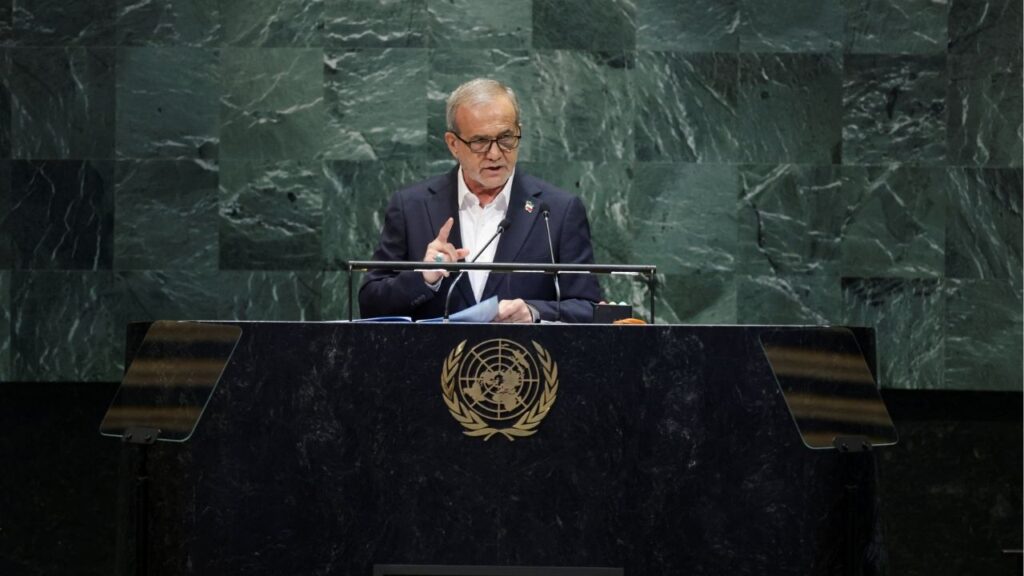Share
A UCSF Fresno study of the safety and efficacy of adipose-derived stem cells as a potential treatment for COVID -19 patients who have serious lung damage has shown promising benefits and has prompted further study internationally and at UCSF Fresno.
UCSF Fresno was selected as the only site for the phase 1 of this study, COVID-19 Stem Cell Therapy: A Phase 1 Study of Intravenous Administration of Allogenic Adipose Stem Cells. The study, led by Eyad Almasri, MD, a faculty member at UCSF Fresno, enrolled 10 patients with acute respiratory distress syndrome (ARDS) who had moderate or severe illness. Each received three intravenous infusions of stem cells on three separate days.
(Editor’s Note: This article was written by UCSF Fresno health reporter Barbara Anderson. You can read other UCSF Fresno news at this link.)
These COVID-19 patients all had serious and life-threatening ARDS and were struggling to breathe. With ARDS, tiny air sacs in the lungs fill up with fluid, reducing the lungs’ ability to transport oxygen into the blood. And in severe cases, the body’s immune system responds by flooding the lungs with inflammatory cells and proteins, further restricting passage of oxygen into the blood and to organs.
The hope is the adipose stem cells, collected from an adult donor, will reduce lung inflammation when infused in a patient. Studies have shown allogenic mesenchymal stem cells (MSC) — adult stem cells that are present in bone marrow but can also be obtained from fat tissue — may be effective at stopping an inflammatory overreaction (called a cytokine storm) in the lungs. MSC cells “work like a sponge to absorb the inflammatory proteins and reduce the inflammation cascade in the lung,” said Dr. Almasri, a UCSF associate clinical professor and faculty member at the Department of Internal Medicine — Pulmonary and Critical care and Sleep Medicine who also serves as the assistant dean for research at UCSF Fresno.
Patients for the study were chosen who were not on mechanical ventilation yet but whose lung functions were severely compromised by ARDS. “This was presented as a potential option for people who are not improving or people who are getting worse quickly,” Dr. Almasri said.
No Deaths Among Study Participants
Mortality for patients with severe ARDS who require mechanical ventilation is as high as 39%. The expected mortality for patients with moderate ARDS is 20-30% and of the 10 patients with ARDS enrolled in the UCSF study, two or three would be expected to die, Dr. Almasri said.
“We had no deaths,” he said. All 10 patients were discharged from Community Regional Medical Center after completing treatment with stem cells and were followed for three months. “Our last patient just passed his 90-day safety check,” he said.
A 53-year-old from Fresno was one of 10 patients enrolled in the UCSF Fresno Phase 1 stem cell study. The patient thought a cough that wouldn’t go away at New Year’s was the flu, but a test for COVID-19 came back positive and within days the virus had attacked his lungs. He couldn’t breathe, even on home oxygen borrowed from his mother. His family called for an ambulance and he was taken to Community Regional.
The patient had no hesitation about joining the UCSF Fresno stem cell study. “I’ll do anything. I’m trying to get better. And anything that might work for me is good,” he said.” Three days after the stem cell infusions, his oxygen requirement dropped from 6 liters per minute to 2 per minute and he was sent home on 2 liters of oxygen.
The swift turnaround surprised the research team, Dr. Almasri said. “He had very clear, quick and more than expected improvement.”
Dr. Almasri cautioned the UCSF Fresno study is a small sample and conclusions cannot be drawn from it because it could be pure chance. “But the mortality was lower than what we would have expected,” he said.
Phase 2 of Study Gets Green Light
Results from the UCSF Fresno study have sparked interest among other researchers. Based on two case studies from the UCSF Fresno clinical trial presented to the U.S. Food and Drug Administration and from testimony by Dr. Almasri before the Brazilian Health Regulatory Agency, a Phase 2 COVID-19 stem cell clinical trial won approval to begin in Brazil this June.
Evidence from the Phase 1 trial at UCSF Fresno also was enough for the Food and Drug Administration to give a green light to UCSF Fresno to submit a proposal for a Phase 2 clinical trial that will be a double-blinded randomized study, meaning some patients will receive stem cell infusions and others will receive a placebo. Dr. Almasri and the research team will not know which patients receive the stem cells.
The Phase 2 stem cell study is one of the latest in a string of COVID-19-related research projects at UCSF Fresno. Many of the studies have been led by Dr. Almasri and others at UCSF Fresno.
RELATED TOPICS:
Categories

DHS Agent Killed US Citizen in March 2025, Records Show

Johannes Klaebo. Inevitable.

















